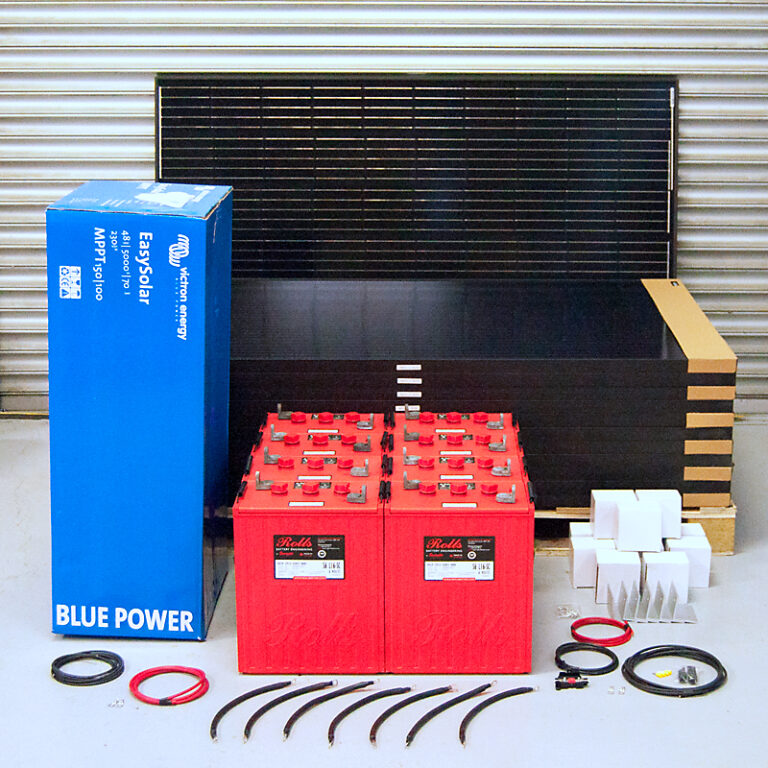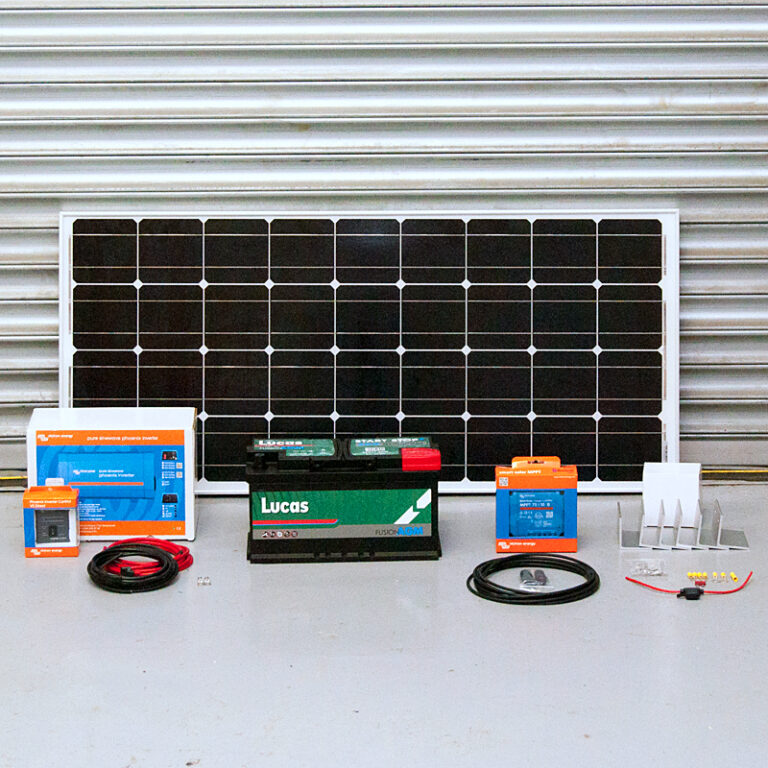Overview of Features
| Feature | Description |
|---|---|
| Power Output | 4000W, 48V |
| Energy Storage | 14.0kWh (with upgrade options available) |
| Suitable Applications | Ideal for fully off-grid homes |
| Average Daily Generation | Approx. 30.0 kWh in UK summer conditions |
| Components Included | High-capacity solar panels, inverter charger, batteries, etc. |
| Mounting Options | Basic L-shape aluminium brackets |
| Optional Upgrades | Lithium battery upgrades, pre-wired board |
| Price Range | £8,304.23 – £10,469.37 including VAT |
Description
The 4000W, 48V, 14.0kWh Professional Off-Grid Solar System is a robust solution designed for entirely off-grid homes, capable of delivering substantial power to support a household’s complete energy needs. Equipped with ten 400W domestic solar panels and a powerful Victron EasySolar-II 48/5000 GX solar inverter charger, this system can generate an impressive 30.0 kWh per day in optimal conditions. It also includes a set of eight Rolls S6 460 AGM batteries for reliable energy storage.
Pros
- High Power Output: With a 4000W capacity, it meets the energy demands of an average household.
- Comprehensive Energy Production: Capable of generating substantial daily kWh, reducing reliance on traditional power sources.
- Quality Components: Includes well-regarded brands like Victron for the inverter and charger, ensuring system reliability and performance.
- Customizable Storage Options: Offers upgrades to lithium-ion batteries for increased efficiency and reduced charging time.
Cons
- High Initial Investment: The price point may be a barrier for some, given the comprehensive setup.
- Complex Installation: Likely requires professional installation due to the system’s complexity and power level.
- Mounting Hardware Limitations: Basic mounting brackets may not be suitable for all installation surfaces, potentially requiring additional expenses.
Conclusion
The 4000W, 48V, 14.0kWh Professional Off-Grid Solar System stands out as a high-performance, fully self-sustaining power solution perfect for off-grid living. Its capacity to generate a significant amount of daily power makes it ideal for households looking to become energy independent. While the initial cost and installation might seem daunting, the long-term benefits of reduced energy bills and a lower carbon footprint make it an excellent investment for those committed to sustainable living. This system is not just about energy efficiency; it’s about taking a significant step towards resilience and environmental responsibility. With the potential for customization and expansion, it offers a scalable solution adaptable to growing energy needs. If you’re prepared for the initial setup, this solar system promises to be a dependable and rewarding energy source for years to come.

